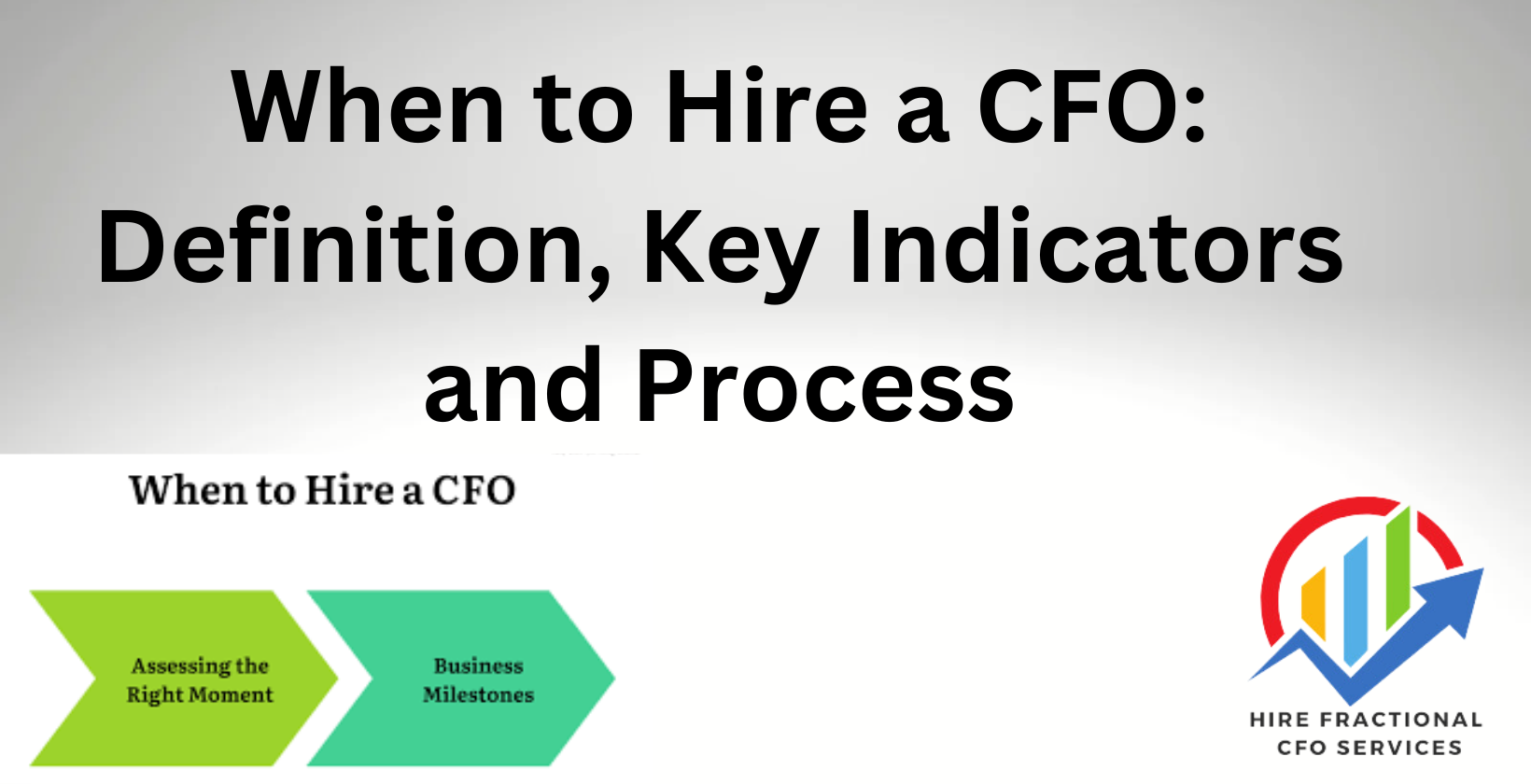Hiring a Chief Financial Officer (CFO) is a critical decision for any business aiming to strengthen its financial health and strategy. A CFO provides financial oversight, strategic planning, and decision-making that supports growth and long-term success. Businesses should consider hiring a CFO when they experience rapid growth, require advanced financial strategies, or face complex financial challenges.
The role of a CFO involves more than managing budgets or financial reporting. It encompasses risk management, investor relations, and ensuring regulatory compliance. According to a 2023 study by the Harvard Business Review, companies with CFOs showed a 15% higher success rate in navigating market challenges.
Deciding when to hire a CFO depends on the company’s size, goals, and current financial complexities. For small businesses, fractional CFO services or interim solutions might be more practical than hiring a full-time executive.
When Is It Time to Hire a CFO
It is time to hire a CFO when your business’s financial complexity surpasses the capacity of existing personnel. This stage often occurs during rapid growth, significant revenue increases, or expansion into new markets. A CFO becomes essential for handling advanced financial strategies, such as mergers, acquisitions, and managing investor relations.
For example, businesses transitioning from small operations to mid-sized companies may face challenges in financial forecasting, regulatory compliance, and risk management. According to research by Deloitte in 2022, companies with a dedicated CFO during growth phases demonstrated a 20% improvement in financial performance and decision-making clarity.
When Should a Startup Hire a CFO
A startup should hire a CFO when its financial operations require professional oversight, especially after securing significant funding or achieving consistent revenue streams. A CFO can manage complex budgeting, investor reporting, and financial forecasting.
For instance, startups entering Series A or Series B funding rounds often need a CFO to handle capital allocation and ensure transparent communication with investors. A study by Stanford Graduate School of Business in 2021 found that startups with CFOs during early funding rounds were 30% more likely to achieve long-term scalability compared to those without.
Why Do You Need a CFO?
Businesses and startups need a CFO for several reasons, as this role is pivotal in managing financial health and driving growth:
- Financial Strategy and Planning: A CFO ensures the business has a clear financial roadmap to achieve its goals. According to Forbes, businesses with well-defined financial strategies see a 25% increase in long-term profitability.
- Risk Management: A CFO identifies financial risks and implements measures to mitigate them, safeguarding the company’s assets and reputation.
- Regulatory Compliance: A CFO ensures compliance with financial regulations and standards, reducing the risk of legal issues.
- Investor Relations: Startups often require a CFO to communicate with investors, ensuring trust and transparency in financial reporting.
- Scalability: For growing businesses, a CFO manages complex financial needs, such as cost control, resource allocation, and forecasting future growth.
For example, a small tech startup entering global markets may require a CFO to handle international financial compliance and strategic planning.
At What Point Do You Need a CFO?
You need a CFO when financial management exceeds the expertise of your current team and becomes critical to business growth or sustainability.
For instance, when a business’s revenue exceeds $10 million annually or its financial operations involve complex budgeting, tax management, and compliance, a CFO becomes essential. Research by PwC in 2020 indicates that 85% of companies hiring CFOs during periods of financial complexity were better positioned to manage growth and risk effectively. A CFO ensures the business maintains stability while scaling operations or navigating challenging market conditions.
At What Stage of Growth Do Companies Hire a CFO?
Companies typically hire a CFO during the growth stage when financial complexity increases and strategic decision-making becomes critical. This stage often occurs after achieving product-market fit, securing significant funding, or planning for expansion into new markets.
For example, a company scaling from a small to a mid-sized operation may require a CFO to oversee financial forecasting, resource allocation, and investor relations. A 2022 survey by McKinsey & Company revealed that 70% of companies hired a CFO between their Series B and Series C funding rounds, highlighting the role’s importance in managing growth transitions.
At What Revenue Do You Need a CFO?
You need a CFO when your company’s annual revenue reaches approximately $10 million or higher. At this revenue level, financial operations become complex, requiring advanced expertise in budgeting, tax management, and compliance.
For instance, a business generating $12 million annually with multiple revenue streams may face challenges in forecasting, controlling costs, and preparing for audits. According to a 2023 Ernst & Young report, companies with CFOs managing revenues over $10 million reported 25% more accurate financial projections, aiding in sustainable growth and investor confidence.


